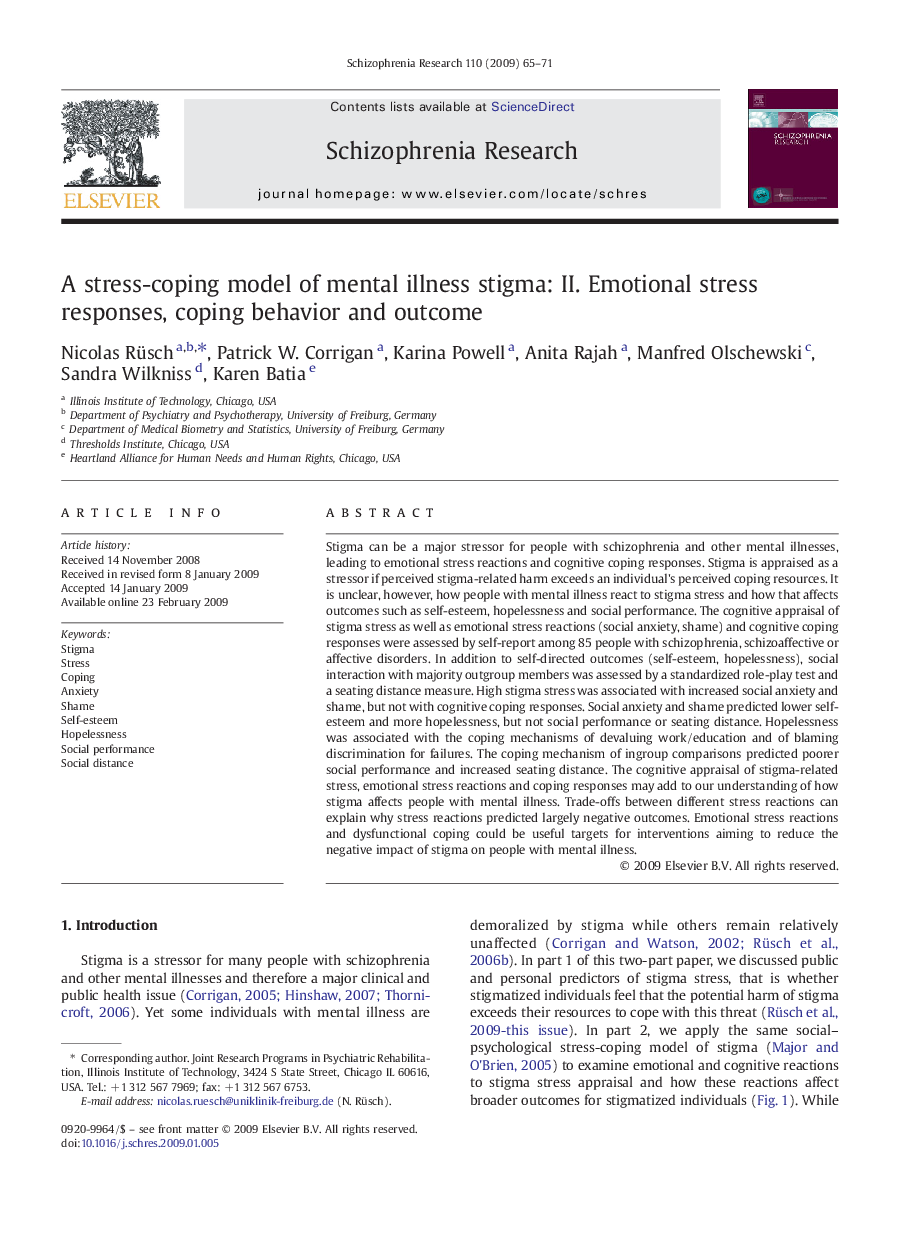| کد مقاله | کد نشریه | سال انتشار | مقاله انگلیسی | نسخه تمام متن |
|---|---|---|---|---|
| 339374 | 548076 | 2009 | 7 صفحه PDF | دانلود رایگان |

Stigma can be a major stressor for people with schizophrenia and other mental illnesses, leading to emotional stress reactions and cognitive coping responses. Stigma is appraised as a stressor if perceived stigma-related harm exceeds an individual's perceived coping resources. It is unclear, however, how people with mental illness react to stigma stress and how that affects outcomes such as self-esteem, hopelessness and social performance. The cognitive appraisal of stigma stress as well as emotional stress reactions (social anxiety, shame) and cognitive coping responses were assessed by self-report among 85 people with schizophrenia, schizoaffective or affective disorders. In addition to self-directed outcomes (self-esteem, hopelessness), social interaction with majority outgroup members was assessed by a standardized role-play test and a seating distance measure. High stigma stress was associated with increased social anxiety and shame, but not with cognitive coping responses. Social anxiety and shame predicted lower self-esteem and more hopelessness, but not social performance or seating distance. Hopelessness was associated with the coping mechanisms of devaluing work/education and of blaming discrimination for failures. The coping mechanism of ingroup comparisons predicted poorer social performance and increased seating distance. The cognitive appraisal of stigma-related stress, emotional stress reactions and coping responses may add to our understanding of how stigma affects people with mental illness. Trade-offs between different stress reactions can explain why stress reactions predicted largely negative outcomes. Emotional stress reactions and dysfunctional coping could be useful targets for interventions aiming to reduce the negative impact of stigma on people with mental illness.
Journal: Schizophrenia Research - Volume 110, Issues 1–3, May 2009, Pages 65–71